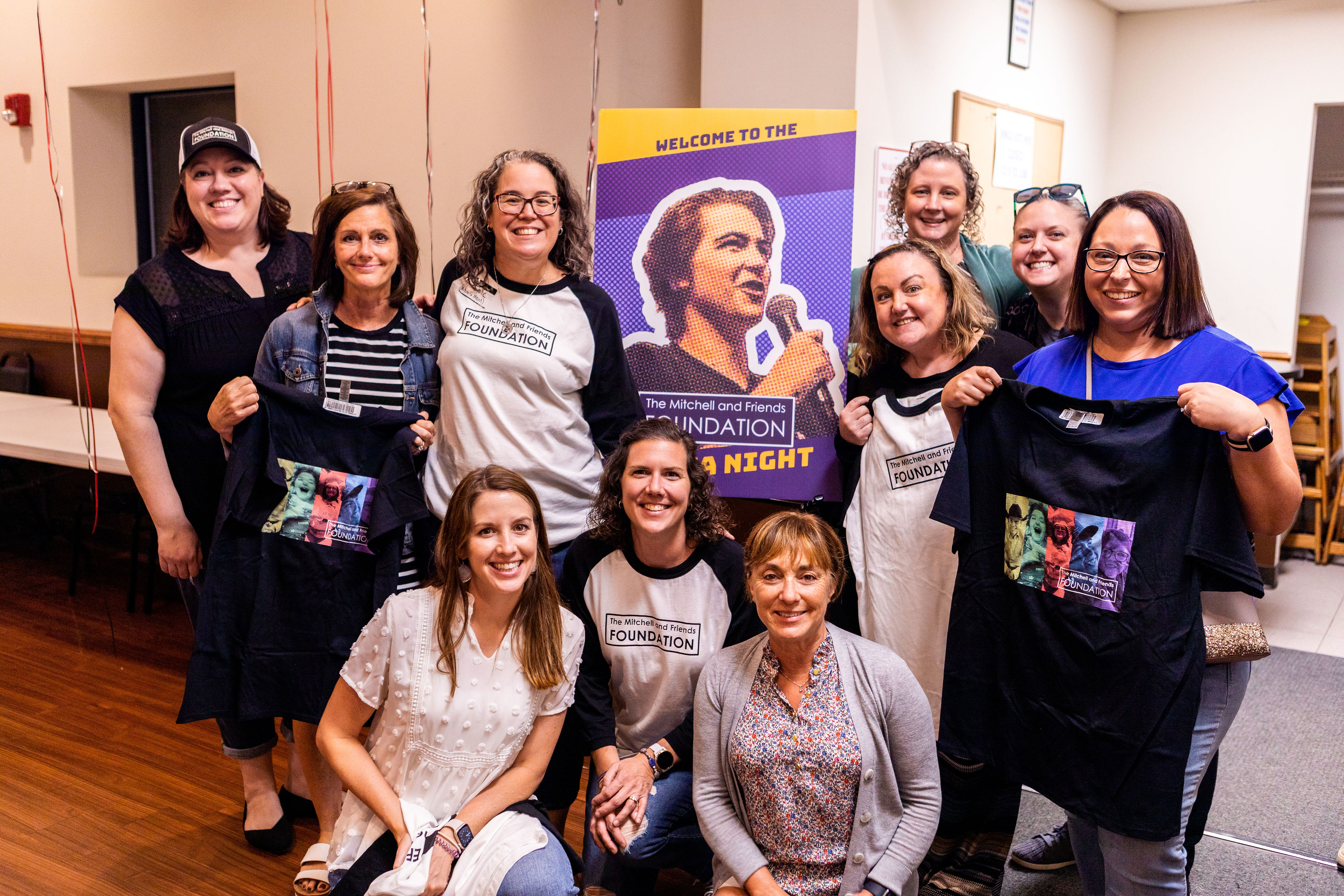
Michele and Matt Herndon honor their late son, Mitchell, by building the support community he longed for while coping with an unknown neurodegenerative disorder.
When 19-year-old Mitchell Herndon died in October 2019, his parents, Michele and Matt, dealt with what they call COVID grief—mourning their son at the same time the entire world transformed into one of anxious isolation. During those long months, they brainstormed ways to ease their grief. Would a dog give comfort to them and their younger children, Maxwell and Miranda? Would continuing their education provide a distraction? But even as they contemplated how to move forward, the answer kept finding them. Parents from across the country began reaching out to them for information and advice. The reason: Their children had just been diagnosed with a rare neurodegenerative disorder caused by a genetic mutation in the ACOX1 gene. It was called Mitchell Syndrome, and it was named after the Herndons’ son, the first patient ever diagnosed with the disease.
“These parents were experiencing the same worry and confusion we went through for seven years as Mitchell struggled with debilitating symptoms for which there was no explanation,” says Matt, the Lead Pastor at Rooftop Church in Affton, Missouri, a St. Louis suburb. “We had to decide if we wanted to follow this path of offering support to these families, because we knew it was a long-term commitment—although rare, this disease is being diagnosed in children and young adults around the world.”
“In our hearts we knew Mitchell would want us to continue serving as a resource for these parents and their children,” adds Michele, formerly a nurse manager at St. Louis Children’s Hospital. “Mitchell hated that there was no community for him. There was no one he could talk to who could completely understand what he was going through. And even though we as parents had the support of many people—our family, hospital physicians and staff, church members—we often felt alone dealing with a disease no one understood.”
The Herndons decided to build the community Mitchell had longed for by establishing The Mitchell and Friends Foundation in 2021. Matt developed a website outlining the foundation’s goals: to raise awareness of this newly diagnosed disease, promote research into possible treatments, and offer “guidance, gifts and grace” to families in need. The Herndons offered guidance by sharing their knowledge and experience of the disease with families and helping parents and their children connect with others. They also continued building a network of physicians and researchers involved in either caring for children with Mitchell Syndrome or investigating the disease. In addition, the foundation established a small fund to finance basic patient needs—a wheelchair, a ramp, some money for a family vacation. But the Herndons quickly realized there was more they wanted to do.
“I remember finishing up a Zoom conversation with grandparents who were raising two grandkids diagnosed with Mitchell Syndrome. It’s suspected their mom had passed away from the disease,” says Michele. “It was then I knew people needed more than ramps and trips, they needed a treatment, which did not—and still doesn’t—exist.”
The Herndons talked with Robert Bucelli, MD, PhD, Mitchell’s Washington University School of Medicine (WUSM) adult neurologist. Their discussions led to The Mitchell and Friends Foundation’s commitment in January 2022 to raising $150,000 over a two-year period. Of that amount, $100,000 was pledged to the research laboratory of neurologist Timothy Miller, MD, PhD, a physician-scientist at WUSM and one of the nation’s foremost researchers into neurodegenerative diseases. The funding would support his team’s research into a possible treatment for Mitchell Syndrome using antisense oligonucleotides to ultimately decrease the excess amount of ACOX1 activity attributable to the mutation. It also would provide seed money for research designed to describe the syndrome’s clinical phenotype with a goal of developing a natural history study to better understand how the disease evolves. The additional $50,000 was designated for research at Houston Methodist Hospital in Texas, where researchers are focusing on a powerful antioxidant, n-acetylcysteine amide, as a potentially effective treatment.
Through a grassroots effort of soliciting small donations, sponsoring an annual trivia night, and receiving contributions from fundraisers organized by Mitchell Syndrome families, the Foundation has reached it’s $150,000 goal in 2024. Going forward, the Herndons are confident their fundraising efforts will carry on as the search for a treatment for Mitchell Syndrome continues.
“We experience a strange dichotomy in our work with the foundation,” says Michele. “When parents find us through our website or a physician referral, we are disheartened to know another child has been diagnosed with this debilitating and fatal disease. At the same time, we are uplifted because we know we can honor Mitchell by offering them help and comfort.”